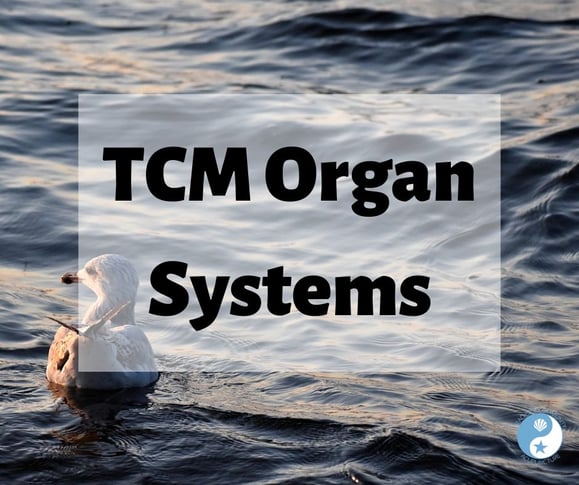
This post contains affiliate links, meaning Beachside Community Acupuncture PLLC may receive a small commission for purchases made through certain links at no additional cost to you. (In other words, you support us in a small way when you buy the products that we highly recommend and would use ourselves!) Click here to view our full disclosure policy.
We've discussed how acupuncture (and acupressure) can be used to bring balance to the meridians of the body to treat pain, but how do Licensed Acupuncturists treat conditions like fertility, depression, and indigestion? The answer lies in narrowing down which organ systems are off kilter, and the Traditional Chinese Medicine (TCM) concept of organs can be very different than what you probably know.
Some of the organs' functions overlap with Western medicine - the Heart circulates blood, the Lungs control breathing, etc. - but many others don't. Additionally, every organ corresponds to one of the Five Elements and therefore has associated relationships with emotions, sense organs, food flavors, and more. In this way, organs are much more than masses in the body! To distinguish between the Western view of an organ and the TCM view, you'll often see TCM practitioners capitalize the organ name or refer to it as an "organ system."
TCM Organ Overview
In TCM, there are twelve main organs in the body, each having special functions. They are classified as being either Yin or Yang in nature:
- Yin organs: Spleen, Liver, Kidney, Lung, Heart, Pericardium
- Yang organs: Stomach, Gallbladder, Urinary Bladder, Large Intestine, Small Intestine, San Jiao
The Yang organs are characterized as being hollow, meant to either store a substance (e.g. bile in the Gallbladder) or allow substances to pass through (e.g. urine through the Urinary Bladder). They can have other special functions, but for the most part they're pretty straightforward. The Yin organs, on the other hand, tend to differ much more...
The Spleen System in TCM
Qi comes from the air we breathe and the food we eat, and the Spleen is the main digestive organ in TCM. It's in charge of holding our organs in place, keeping our Blood in our vessels, pulling nutrients from food, and maintaining our day-to-day energy. We also call the Spleen the "Origin of Blood" as it produces Blood to flow through the meridians, which corresponds a little more closely to its function in Western medicine.
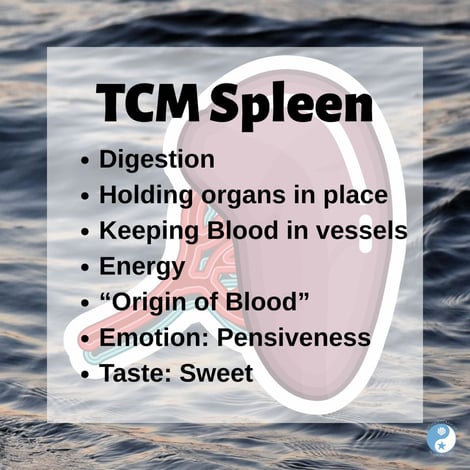
The Liver System in TCM
The "general" in charge of the movement of Qi through the body, the Liver plays a huge role in TCM. The Liver is the organ most easily influenced by stress, and its disharmony can disrupt other organs. It also stores Blood and has a strong tie to the reproductive system, especially menstruation in women.
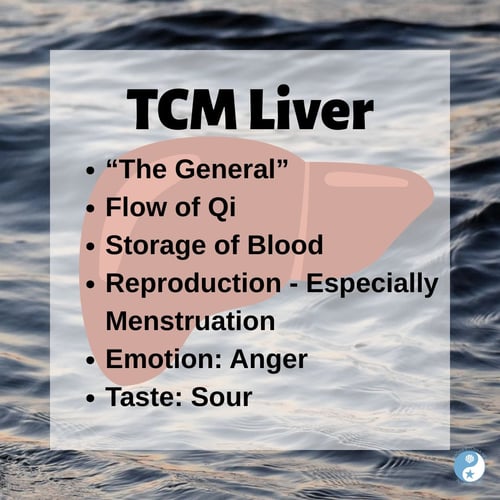
The Kidney System in TCM
When we run ourselves down to the point that the energy derived from our Spleen and Lung systems isn't enough, we tap into our Kidney system as it's the body's reservoir. The Kidney is linked to urination like in Western medicine, but it's also involved in growth and reproduction in TCM. While the Kidney's vital substances (e.g. Yin, Yang, and Essence) naturally decrease with age, poor diet and lifestyle choices can deplete them more quickly and lead to symptoms similar to adrenal fatigue in naturopathic medicine.
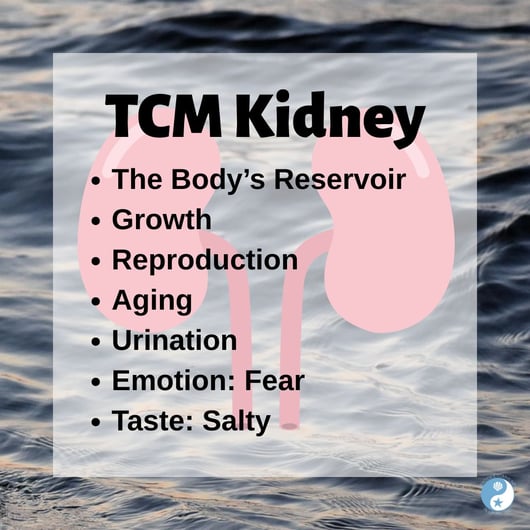
The Lung System in TCM
As previously mentioned, the Lung system controls breathing, but it's also in charge of the TCM version of the immune system and controls sweating.
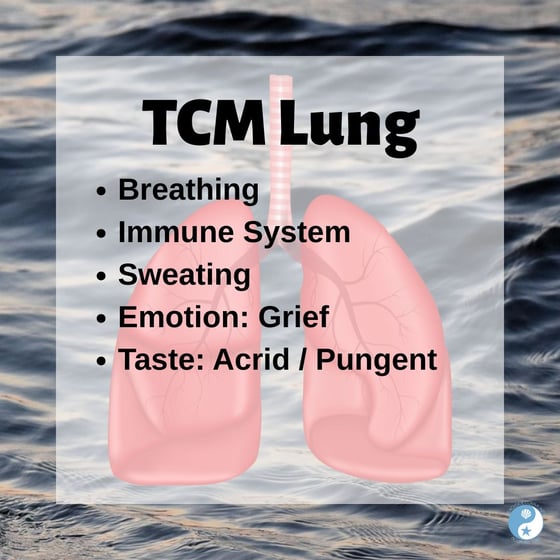
The Heart System in TCM
While the Heart's most important physical job is to pump Blood, it also "houses the mind" in TCM, making it a huge player in sleep patterns and mental and psychological disorders.
The Pericardium System in TCM
In Western medicine, the pericardium surrounds and protects the heart, and TCM sees it in a similar way. The Pericardium system is usually intertwined with the Heart and its imbalances mostly present as psychological distress or a lack of mental clarity.
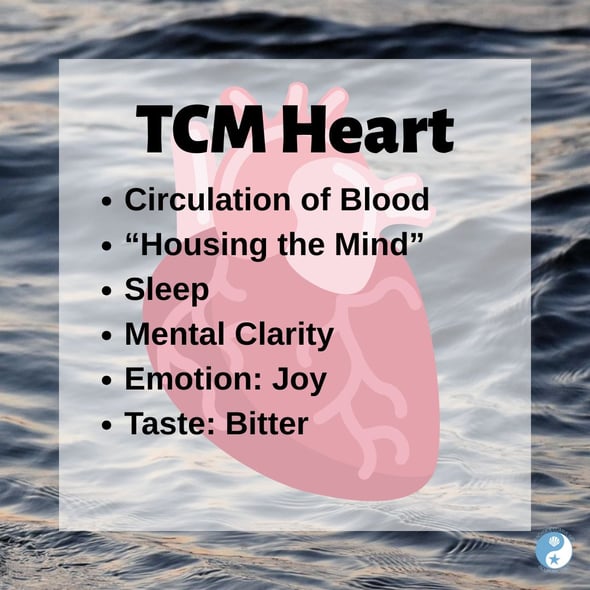
So What's This All mean?
The body is a delicate balance of all of these systems, and an upset in one will usually affect the others over time. Ancient scholars predicted these patterns, and modern medicine is constantly proving them correct! The job of your Licensed Acupuncturist is to determine which pattern is causing your symptoms, and then develop a treatment plan to help the body get back into balance. You don't have to understand the organ systems in order for acupuncture to work, but if you're interested in learning more, The Web That Has No Weaver has a good overview and Between Heaven and Earth explains the Five Elements on a broader scale.
This post was originally published in October of 2017 and was updated in August of 2025.

Kathleen Ketola is a Licensed Acupuncturist and the owner of Beachside Community Acupuncture. She loves providing affordable acupuncture to the residents of McKinney, Texas, and surrounding cities like Prosper, Frisco, and Melissa, but she also enjoys educating the general public on how acupuncture and Traditional Chinese Medicine (TCM) can treat everything from pain to infertility to stress and beyond. Book online or contact her at (214) 417-2260 if you'd like to schedule an appointment.










Write a comment